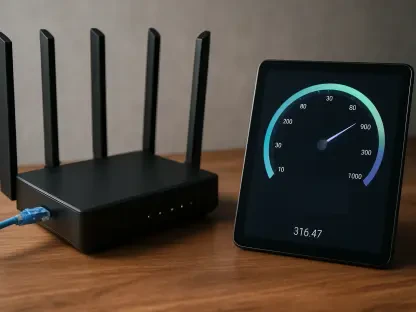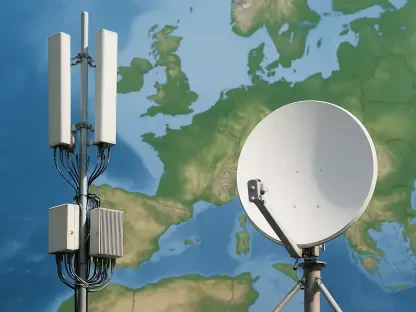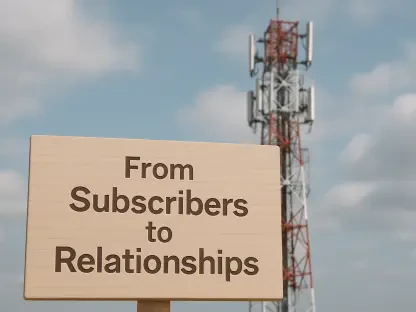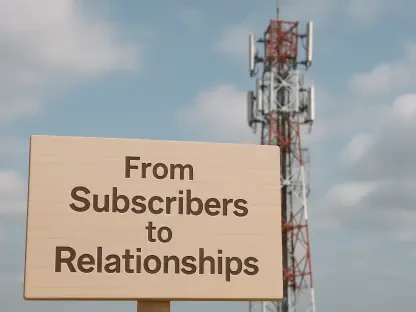I’m thrilled to sit down with Vladislav Zaimov, a seasoned telecommunications specialist whose deep expertise in enterprise telecommunications and risk management of vulnerable networks offers a unique perspective on the latest developments in the industry. Today, we’re diving into Verizon’s unexpected CEO transition, the implications for key figures like Sowmyanarayan Sampath, and the broader challenges facing the company amidst subscriber losses and competitive pressures. Our conversation will explore the reasons behind the sudden leadership change, the strategic decisions that may have influenced it, and what this means for Verizon’s future in a rapidly evolving market.
Can you walk us through the recent CEO change at Verizon and what might have led to Hans Vestberg stepping down?
Certainly. Verizon’s decision to replace Hans Vestberg with Dan Schulman as CEO wasn’t entirely out of the blue, given the company’s ongoing struggles, particularly with subscriber losses. Over the first half of 2025, they’ve seen more than 330,000 customers walk away, and their stock price has taken a significant hit over the past few years. Vestberg’s tenure saw some ambitious bets on 5G and other technologies, but the execution—especially around millimeter wave investments and the slow rollout of 5G standalone—didn’t deliver the expected results. I think the board likely felt a change was necessary to address these mounting challenges and signal a shift in direction to investors.
What do you make of the sudden timing of Dan Schulman’s appointment, especially with the ‘effective immediately’ announcement?
The abruptness of the ‘effective immediately’ tag really caught the industry off guard. Typically, major transitions like this are telegraphed well in advance to prepare stakeholders, as we’ve seen with other companies in the sector. My sense is that Verizon’s board may have wanted to avoid prolonged uncertainty or speculation that could further erode confidence among investors or customers. It could also suggest there were internal pressures or performance issues that demanded an immediate response, even if they weren’t publicly disclosed.
How do you think the lack of advance notice impacted perceptions among industry watchers and investors?
It definitely raised eyebrows. Without a clear heads-up or a detailed explanation, it left a lot of room for speculation. Industry watchers and investors are now questioning whether there’s more to the story—perhaps deeper operational or strategic failures that haven’t been shared. This kind of opacity can shake confidence, as it contrasts with more transparent transitions we’ve seen elsewhere in the telecom space. People are left wondering if this was a reactive move rather than a planned succession, which doesn’t inspire trust in the short term.
Why do you think Verizon didn’t provide a clear reason for the timing of this leadership switch?
That’s a tough one, but I suspect it’s a mix of wanting to control the narrative and perhaps not having a polished story to tell. If the decision was driven by specific failures or internal disagreements, disclosing those could damage morale or invite more scrutiny. By keeping it vague, Verizon might be trying to shift focus to new initiatives—like their recent acquisitions—rather than dwell on the ‘why.’ But this approach risks fueling speculation, as stakeholders are naturally curious about what prompted such a sudden move.
Turning to Sowmyanarayan Sampath, why do you think he was passed over for the CEO role despite being seen as the heir apparent?
Sampath has been with Verizon since 2014 and climbed the ranks quickly, taking the helm of the Consumer Group in 2022. Many assumed he’d be next in line, but I think the board might have felt he wasn’t quite ready for the top job, especially given the current headwinds. While he’s shown capability in previous roles, the Consumer Group hasn’t turned around under his watch—subscriber losses have continued. The board likely saw a need for someone with a proven track record of navigating turnarounds, which is where Dan Schulman’s experience comes in.
Speaking of his role, how would you evaluate Sampath’s performance leading the Consumer Group since 2022?
It’s a mixed bag. Sampath inherited a challenging segment at a time when competition in the consumer space is brutal. He’s made efforts to stabilize things, but the numbers don’t lie—Verizon is still bleeding subscribers. That said, it’s not all on him; some of the pricing strategies and network perception issues predate his tenure. I think he’s shown strategic thinking, but the results haven’t materialized yet. Turning around a division like that takes time, especially when competitors are outpacing you on network quality and value.
Do you believe the subscriber losses under Sampath’s watch influenced the decision to bring in Schulman instead of promoting him?
Absolutely, I think it played a significant role. When you’re losing over 330,000 subscribers in just six months, that’s a glaring red flag for the board. While Sampath may not be solely responsible, as the head of the Consumer Group, he’s the face of those results. The board likely wanted someone like Schulman, with a background in restructuring and innovation from his time at PayPal and Virgin Mobile, to come in and tackle these issues head-on with a fresh perspective.
Some analysts suggest Schulman might be a short-term fixer while Sampath prepares for a future CEO role. What’s your take on that idea?
I think there’s merit to that theory. At 67, Schulman brings a wealth of experience, but his appointment could indeed be a bridge to stabilize Verizon and implement tough changes—like cost cuts or pricing overhauls—that might be harder for an internal candidate to push through without baggage. If Sampath can use this time to refine his strategy and deliver results in the Consumer Group, he could position himself as the long-term successor. But that’s contingent on him staying with the company and proving his mettle.
What specific challenges is Verizon facing right now that might have swayed the board to choose Schulman over Sampath?
Verizon is in a tough spot as an incumbent that’s no longer seen as having the best network, yet it’s charging premium prices. They’ve stumbled with costly millimeter wave investments, lagged in fixed wireless access growth, and been slow to roll out 5G standalone compared to competitors. Schulman’s background in digital payments and mobile innovation likely appealed to the board as a way to rethink Verizon’s approach to customer engagement and operational efficiency, areas where Sampath’s expertise might not be as directly applicable right now.
Given Schulman’s prior role on Verizon’s board since 2018 and as lead independent director, how do you think that shapes his approach as CEO?
His time on the board gives him a significant advantage. He’s not coming in cold—he already understands Verizon’s internal dynamics, culture, and strategic missteps. As lead independent director, he would’ve had a front-row seat to the challenges under Vestberg’s leadership. I expect his approach to be informed by that insider knowledge, focusing on decisive, perhaps radical changes rather than incremental tweaks. He’s likely got a clear idea of what needs fixing and who on the executive team can execute that vision.
Verizon’s subscriber losses are stark, with over 330,000 gone in the first half of 2025. What do you see as the main drivers behind this decline?
It’s a combination of factors. First, their network perception has taken a hit—competitors are seen as offering better 5G coverage and reliability, which matters a lot to consumers. Second, Verizon’s pricing hikes earlier this year to maintain financial guidance backfired, driving up churn as customers sought more affordable options. And third, their slower pace in areas like fixed wireless access means they’re not capturing growth segments as effectively as others. It’s a perfect storm of strategic and competitive pressures.
How do Verizon’s struggles with 5G rollout and pricing compare to competitors, and could this have influenced the CEO change?
Compared to competitors like T-Mobile, Verizon has been playing catch-up. T-Mobile has built a strong reputation for network quality in the 5G era and has been more aggressive with pricing and value propositions. Verizon, on the other hand, spent heavily on millimeter wave spectrum that hasn’t paid off as expected and lagged in rolling out 5G standalone, which limits network efficiency. These missteps likely contributed to the board’s decision to bring in new leadership—someone who could rethink the strategy and stop the bleeding.
Looking ahead, what is your forecast for Verizon’s path under Dan Schulman’s leadership?
I think we’ll see a period of intense restructuring under Schulman. He’s likely to push for significant cost reductions, revisit the pricing model that’s driven churn, and possibly accelerate strategic moves like acquisitions to bolster growth areas. His experience in digital transformation could bring a fresh focus on customer experience and innovation, which Verizon desperately needs to regain competitive ground. But it won’t be easy—turning around subscriber trends and network perception will take time, and there’s always the risk of further executive shake-ups if the current team doesn’t align with his vision. I’m cautiously optimistic, but the next couple of years will be critical.









